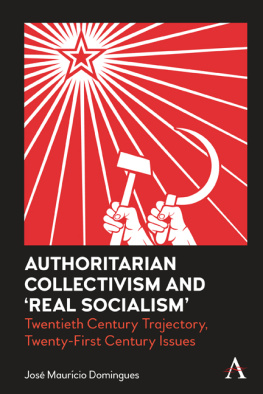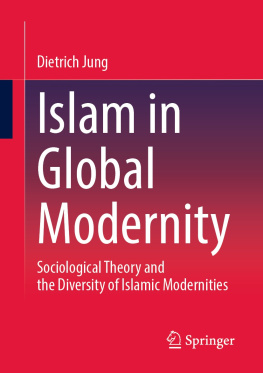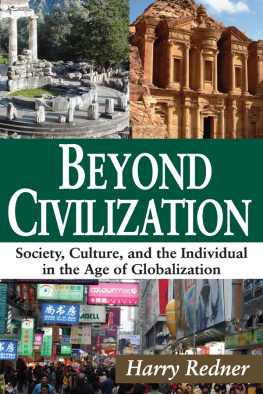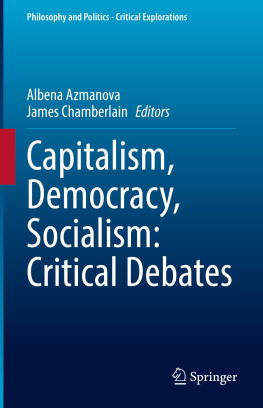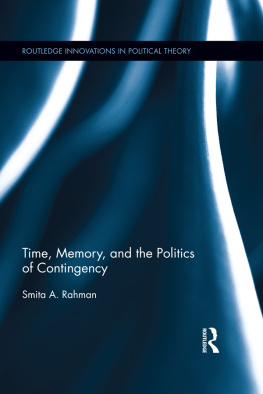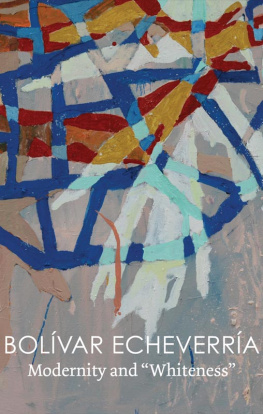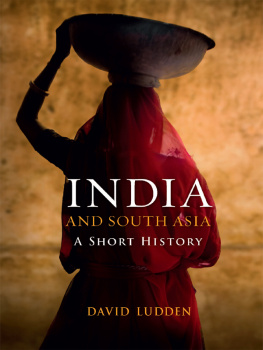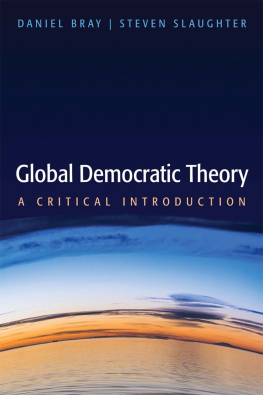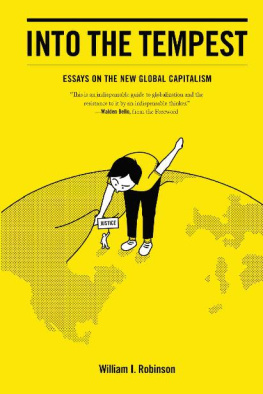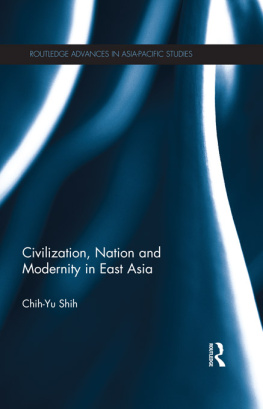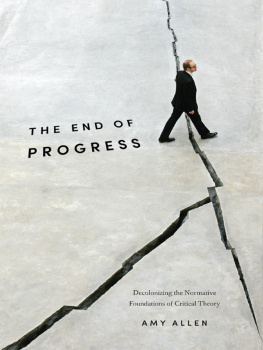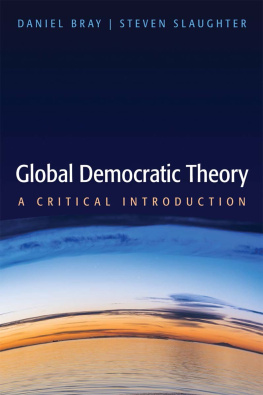First published 2012
by Routledge
711 Third Avenue, New York, NY 10017
Simultaneously published in the UK
by Routledge
2 Park Square, Milton Park, Abingdon, Oxon OX14 4RN
Routledge is an imprint of the Taylor & Francis Group, an informa business
2012 Taylor & Francis
The right of Jos Maurcio Domingues to be identified as author of this work has been asserted in accordance with sections 77 and 78 of the Copyright, Designs and Patents Act 1988.
All rights reserved. No part of this book may be reprinted or reproduced or utilised in any form or by any electronic, mechanical, or other means, now known or hereafter invented, including photocopying and recording, or in any information storage or retrieval system, without permission in writing from the publishers.
Trademark notice: Product or corporate names may be trademarks or registered trademarks, and are used only for identification and explanation without intent to infringe.
Library of Congress Cataloging in Publication Data
Domingues, Jos Maurcio.
Global modernity, development, and contemporary civilization : towards a renewal of critical theory / by Jos Maurcio Domingues.
p. cm. (Routledge studies in emerging societies)
Includes bibliographical references and index.
1. Critical theory. 2. Civilization. 3. Economic development. 4. Social sciencesPhilosophy. I. Title.
B809.3.D66 2012
303.4dc23
2011022881
ISBN: 978-0-415-80694-7 (hbk)
ISBN: 978-0-203-15402-1 (ebk)
General Introduction
This is a book of social theory about global modernity, cast as a critical theory of contemporary society. It is, however, a book of social and critical theory in a specific way. It aims at a revision of what both strands of theory, which have tended to overlap, are supposed to mean today, especially attempting to re-orient them in a more empirical and historical direction, as well as placing the global social formation at its core, specifically concentrating on the semiperiphery and the periphery. Social theory has been too often abstract and critical theory, initiated by Marxs work, took a specific, more philosophical and cultural direction with the emergence of the so-called Frankfurt School. If a return to a social theory connected to history can be discerned in some strands of theorization about modernity, a long way is still ahead of us. While Marx moved away from philosophy and aimed at grounding immanent critique in theoretical as well as in empirical social science, further developments starting with Lukcs and culminating in Habermas work had philosophy as their hallmark, even when socio-theoretical advances underpinned their presentation. There should be no doubt about the productivity of this sort of strategy, which has left legacies that will be drawn upon in this book. But its limits today are plain to see. Social theory has been lost to a great extent in repetitions and exegesis whereas, along with a crisis of emancipatory drives in social life as such, the exhaustion of that sort of critical theory is evident: in fact there is no critical theory any longer, even less one which could claim vigour and originality, except for some more traditionally Marxist discussions, frequently carried out in disciplines such as geography, until a while ago rather eccentric in critical as well as academic terms more generally. Post-colonial approaches and other currents have been no substitute for its decay. Indeed, this book appears moreover as much as an alternative to the multiple modernities approach as to post-colonial discursive claims, in dialogue however with them both. Many of their insights, either politically or theoretically, are valid, yet their solutions are problematic. This entails a need of revision and the offering of alternatives to the sort of questions they address and to their responses.
As a theoretical interpretation of the third phase of modernity, this book sticks to immanent critique, that is, to a critique of modernity which has as its background the unfulfilled promises made in its name and which linger on, globally. However, it understands critical theory in an ecumenical manner and tries also to dialogue with critical perspectives that are not entirely and directly indebted to modernity. It does so adding an empirical dimension and a global angle to its demarche. The values and institutions of modernity orient to a great extent its global expansion, which has taken over the planet and accelerated once again social time, already now within what I consider to be its third phase. But they tend to do so one-sidedly, with systems of domination enjoying great sway, although this is very uneven globally and emancipatory elements are more or less intensely present in such developments. In its expansion modernity has come across other civilizations and these have become entangled with the eventually dominant, but now heterogeneous, modern civilization. Under the aegis of the latter, a global civilization has emerged, with modernity refashioning those other civilizational elements. This third phase has been witness to the re-affirmation of values that are not originally connected to modernity, due to the increased complexification of social life and a tendency to refrain from projects geared to total homogenization, typical of the first two phases. While, as I shall argue, such elements have been entirely modernized, they have introduced civilizational difference into modernity. Many of these elements are often connected to systems of domination, but many of them can provide a yardstick for a sort of external critique of modernity, although this is only a relatively correct understanding of the situation insofar as they have become part of this global modern civilization, external hence only in the sense that they have no western or modern origins. Alterity has been incorporated within modernity.
This book also differs in another way from classical works of critical theory. It is based on a semiperipheral or peripheral perspective, both in terms of the location of its author, with possible epistemological, axiological and geopolitical effects, as well as of its object. Classical critical theoryup to Habermas indeedhas been thoroughly western and oriented to central countries, mainly Germany, England, France and the United States. Whereas Marxist currents had a keen interest in the global setting of capitalism, which figured prominently in Marxs analyses and was reinforced in Lenins, Luxembourgs and Bukharins discussions of imperialism, Lukcs, Adorno, Horkheimer and Habermas had no interest in globalization, colonialism, imperialism or any similar issue, Marcuse and Sartre being partial exceptions in this regard. Post-colonial theories, introducing issues of western domination over other civilizations, has tried to remedy these shortcomings, but their strategy is too dependent on theories of discourse and thus unilateral. Whatever their achievements, especially as a nuisance for traditional academic disciplines and discourses, they have not provided for an analysis of actual developments of modernity. This is a task that is waiting to be accomplished, beyond exercises in rhetoric. In trying to achieve this goal, it is important to recover dependency theorya South-based approach, which had great global impact. But it too has to be updated, since it was too economistic and often fatalist in its expectations.


